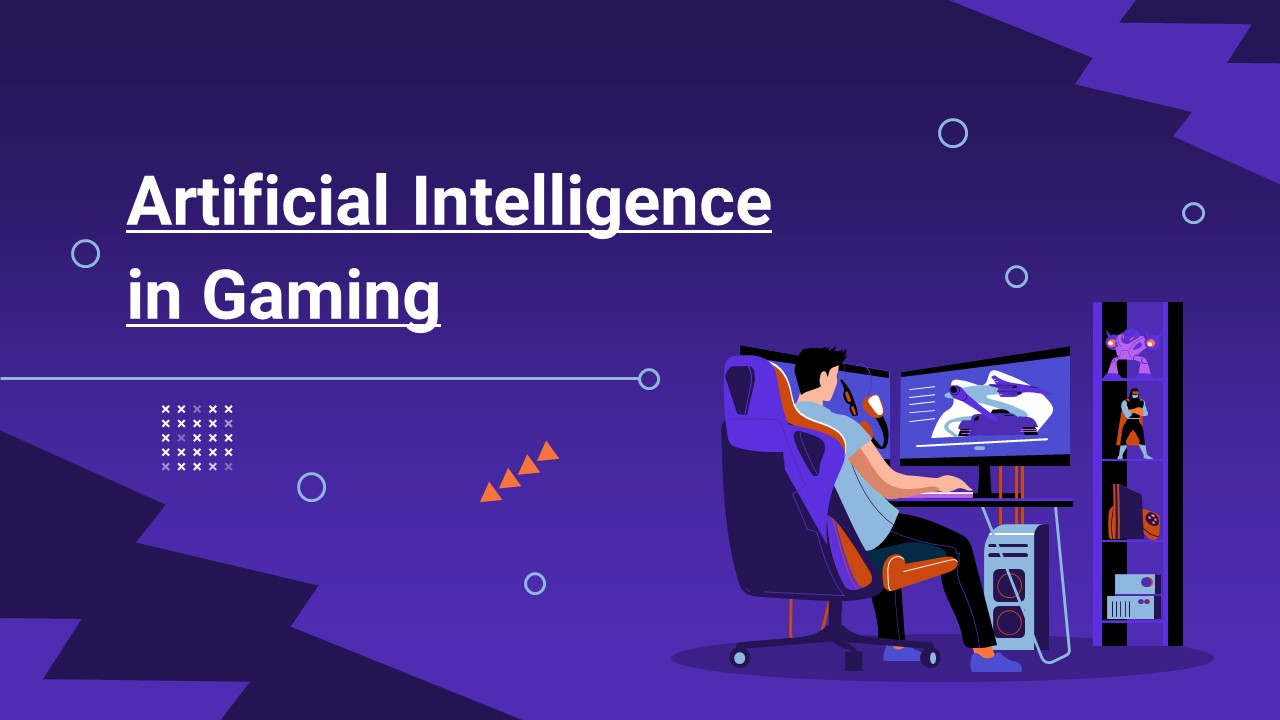Artificial Intelligence in Gaming - PowerPoint PPT Presentation
Title:
Artificial Intelligence in Gaming
Description:
Artificial Intelligence (AI) has revolutionized numerous industries, and the realm of gaming is no exception. Artificial Intelligence refers to the ability of computer systems or machines to simulate human intelligence and behavior. If you want to take an artificial intelligence course in Delhi then check out Jeetech Academy as they are one of the best AI institutes in Delhi. – PowerPoint PPT presentation
Number of Views:46
Title: Artificial Intelligence in Gaming
1
Artificial Intelligence in Gaming
2
Artificial Intelligence (AI) has revolutionized
numerous industries, and the realm of gaming is
no exception. Artificial Intelligence refers to
the ability of computer systems or machines to
simulate human intelligence and behavior.
3
In gaming, AI algorithms and systems are
designed to replicate human-like decision-making,
problem-solving, and adaptability, creating
dynamic and engaging experiences for players. It
allows game developers to create virtual worlds
populated with intelligent non-player characters
(NPCs) that react, adapt, and interact with
players in realistic and immersive ways.
4
If you want to take an artificial intelligence
course in Delhi then check out Jeetech Academy as
they are one of the best AI institutes in Delhi.
5
One of the key applications of Artificial
intelligence in gaming is the creation of
Non-Player Characters (NPCs). NPCs are virtual
characters within the game world that are
controlled by AI algorithms.
6
These characters can interact with players,
exhibit realistic behaviors, and make decisions.
Whether they act as allies, enemies, or neutral
entities, AI-powered NPCs add depth and
complexity to the gameplay, making the virtual
world feel more alive.
7
Enemy AI is another area where AI shines in
gaming. AI algorithms control adversaries within
the game, allowing them to strategize, plan
attacks, and respond to the player's actions.
8
Sophisticated enemy AI provides challenging
gameplay, forcing players to think strategically
and adapt their approach. This aspect adds
excitement and tension, as players never know how
enemies will react, making each encounter unique
and rewarding.
9
Artificial Intelligence also plays a crucial role
in pathfinding and navigation within game
environments. Pathfinding algorithms enable NPCs
and characters to move smoothly through complex
landscapes, avoiding obstacles and finding the
most ideal routes.
10
This enhances the realism and fascination of the
game world, ensuring that characters move and
interact with the environment in a natural and
believable manner.
11
Procedural content generation is another
application of artificial intelligence in gaming.
By leveraging AI algorithms, developers can
generate procedural content such as landscapes,
levels, and quests. This approach makes each
gaming experience unique, as the game world is
dynamically created, offering new challenges,
surprises, and discoveries with every
playthrough.
12
The adaptive difficulty is an AI-powered system
that analyzes player performance and adjusts the
game's difficulty level accordingly. This ensures
that players of different skill levels can enjoy
the game without feeling overwhelmed or bored.
13
Natural Language Processing (NLP) is an AI-driven
technology that enables players to interact with
the game using voice commands or text-based
input. With voice recognition technology, players
can control characters, issue commands, or engage
in dialogue within the game. This creates a more
immersive and intuitive gaming experience,
allowing players to communicate with the game
world in a natural and seamless manner.
14
Player behavior analysis is another valuable
application of AI in gaming. AI algorithms
analyze player behavior, preferences, and
gameplay data to provide personalized
recommendations and targeted content.
15
This data-driven approach enables developers to
deliver customized experiences, suggesting
relevant quests, items, or game modes based on
the player's preferences and playstyle. It
enhances player satisfaction and engagement by
tailoring the gaming experience to individual
needs.
16
AI can also simulate emotions and behavior in
NPCs, making them feel more human-like and
relatable. This enhances storytelling and
character development, creating deeper
connections between players and virtual entities.
17
AI-driven emotion simulation adds richness and
complexity to the narrative, fostering memorable
and emotionally engaging gaming experiences.
Players can form attachments to virtual
characters, making their interactions and
decisions within the game more impactful and
meaningful.
18
Conclusion
AI has revolutionized the gaming industry by
introducing intelligent systems that enhance
immersion and gameplay. From realistic NPCs and
adaptive difficulty to procedural content
generation and player behavior analysis, AI
technologies have opened up new frontiers for
game developers. As AI continues to advance, we
can expect even more sophisticated and immersive
gaming experiences that blur the boundaries
between the virtual and real.
19
Thank you

